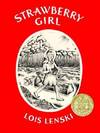![An Algorithm for the Machine Calculation of Complex Fourier Series [within] Mathematics of Computation XIX Nos. 89-92 1965](https://d3525k1ryd2155.cloudfront.net/h/860/217/1564217860.0.m.jpg)
An Algorithm for the Machine Calculation of Complex Fourier Series [within] Mathematics of Computation XIX Nos. 89-92 1965
by Cooley, James W.; John W. Tukey; Harry Polacheck [chairman]
- Used
- very good
- Hardcover
- Condition
- Very Good
- Seller
-
St. Paul, Minnesota, United States
Payment Methods Accepted
About This Item
American Mathematical Society, 1965. First edition. Hardcover. Very Good. 25.5 x 17.5 cm. 724pp. Four issues of the Journal Mathematics of Computation 19, bound together into green boards. The table of contents are present and printed on stiff blue paper, the original covers are not present. The highlight is pages 297-302 which contain the paper "An Algorithm for the Machine Calculation of Complex Fourier Series" by Cooley and Tukey. Provenance: From the Autonetics Research Library with stamps on the bottom foredge. First publication of the Cooley-Tukey Fast Fourier Transform Algorithm (FFT), a faster method for calculating the discrete Fourier transform (DFT). The Cooley-Tukey algorithm is a divide and conquer algorithm which calculates the DFT directly with fewer summations and without matrix mulitplication. A similar algorithm was discovered by Frederick Gauss in 1805, though Cooley and Tukey independently discovered it at are credited with the invention of the modern FFT algorithm during a meeting of President Kennedy's Science Advisory Committee. References: Jeremy Norman's History of Information website and his bibliography. Origins of Cyberspace, 548. C. Sidney Burrus's article on FFTs on LibreTexts. The article "What Makes a Fourier Transform Fast" on the site algorithm-archive by Jamers Schloss.
Reviews
(Log in or Create an Account first!)
Details
- Bookseller
- Midway Used and Rare Books
(US)
- Bookseller's Inventory #
- 73082
- Title
- An Algorithm for the Machine Calculation of Complex Fourier Series [within] Mathematics of Computation XIX Nos. 89-92 1965
- Author
- Cooley, James W.; John W. Tukey; Harry Polacheck [chairman]
- Format/Binding
- Hardcover
- Book Condition
- Used - Very Good
- Quantity Available
- 1
- Edition
- First edition
- Publisher
- American Mathematical Society
- Date Published
- 1965
- Bookseller catalogs
- Mathematics;
Terms of Sale
Midway Used and Rare Books
Domestic shipping is USPS media rate for $6.00 with delivery confirmation. MINNESOTA residents-please add 7.875% Sales Tax.
Shipping costs are based on books weighing 2.2 LB, or 1 KG. If your book order is heavy or oversized, we may contact you to let you know extra shipping is required.Overseas Orders: -billed for exact shipping charges. We prefer INSURED Parcel Post -- buyer assumes all risk of uninsured shipment including mail theft, loss, or damage. INTERNATIONAL: Buyer is responsible for any additional duties, taxes, or fees required by recipients country.
About the Seller
Midway Used and Rare Books
Biblio member since 2005
St. Paul, Minnesota
About Midway Used and Rare Books
Midway Bookstore was established in 1965. We have an open shop overflowing with tens of thousands of used, rare, and out of print books. As a general used bookstore, our stock encompasses all subject areas with a strong emphasis on Art, Illustrated books, History and Photography. You can contact us via e-mail or phone. Keep checking our inventory--we are always adding new titles!
Glossary
Some terminology that may be used in this description includes:
- First Edition
- In book collecting, the first edition is the earliest published form of a book. A book may have more than one first edition in...
![An Algorithm for the Machine Calculation of Complex Fourier Series [within]](https://d3525k1ryd2155.cloudfront.net/h/860/217/1564217860.1.s.jpg)
![An Algorithm for the Machine Calculation of Complex Fourier Series [within]](https://d3525k1ryd2155.cloudfront.net/h/860/217/1564217860.2.s.jpg)
![An Algorithm for the Machine Calculation of Complex Fourier Series [within]](https://d3525k1ryd2155.cloudfront.net/h/860/217/1564217860.3.s.jpg)
![An Algorithm for the Machine Calculation of Complex Fourier Series [within]](https://d3525k1ryd2155.cloudfront.net/h/860/217/1564217860.4.s.jpg)

